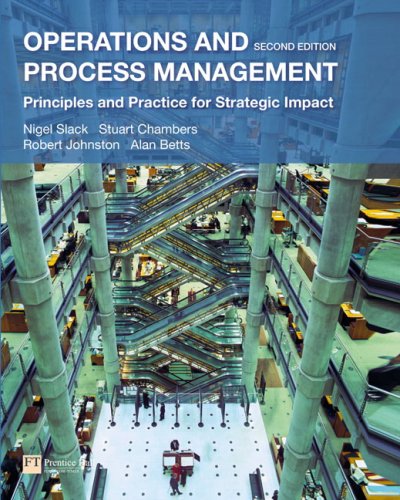4. How does this differ from conventional economic order quantity theory? Inventory management in some operations is
Question:
4. How does this differ from conventional economic order quantity theory? Inventory management in some operations is more than just a part of their responsibility; it is their very reason for being in business. Flame Electrical, South Africa’s largest independent supplier and distributor of lamps, is such a business. It stocks over 2900 different types of lamps, which are sourced from 14 countries and distributed to customers throughout the country.
‘In effect, our customers are using us to manage their stocks of lighting sources for them’, says Jeff Schaffer, the Managing Director of Flame Electrical. ‘They could, if they wanted to, hold their own stock but might not want to devote the time, space, money or effort to doing so. Using us, they get the widest range of products to choose from, and an accurate, fast and dependable service’.
Central to the company’s ability to provide the service its customers expect is its computerized stock management system. The system holds information on all of Flame’s customers, the type of lamps they may order, the quality and brand of lamps they prefer, the price to be charged and the location of each item in the warehouse. When a customer phones in to order, the computer system immediately accesses all this information, which is confirmed with the customer. This leaves only the quantity of each lamp required by the customer to be keyed in. The system then generates an instruction to the warehouse to pick up and dispatch the order. This instruction includes the shelf location of each item. The system even calculates the location of each item in the warehouse that will minimize the movement of stock for warehouse staff.
Step by Step Answer:

Operations And Process Management Principles And Practice For Strategic Impact
ISBN: 9780273718512
2nd Edition
Authors: Nigel Slack , Stuart Chambers , Robert Johnston , Alan Betts






